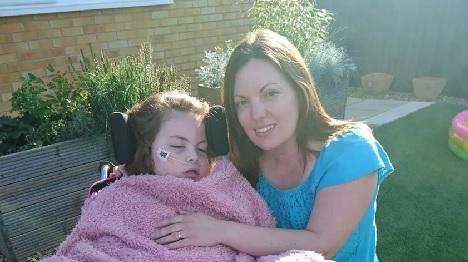
Published on: 03/04/18
84% of families caring for seriously ill children feel alone and isolated.

Published on: 03/04/18
More than four out of five families caring for a child with a life-limiting or life-threatening condition say they have felt isolated and alone since their child’s diagnosis, according to a survey carried out by UK children’s palliative care charity Together for Short Lives.
The report, Hidden Lives: tackling the social exclusion of families caring for a seriously ill child, revealed:
For bereaved families, over 50% said their relationships with family and friends had been adversely impacted by their child’s death.
Together for Short Lives found that a common reason for a change in these families’ social life, relationships and interactions with others included feelings of social exclusion and the sheer exhaustion of caring for a seriously ill child.
Comments included:
“I often don’t want to go out because getting support takes a huge effort, and I haven’t the energy to get dressed up or go anywhere. Sometimes I worry that I’ll just be miserable if I do go out, so I find excuses not to go to social events. I don’t often get asked anymore.”
“My friends have stopped inviting me to social events because I nearly always have to cancel at the last moment due to my child’s illness or my exhaustion.”
“There isn’t any excitement or spontaneity, and that impacts on my son, family and friends.”
Others talked about how hard it is to engage with everyday social conversations or talk about anything trivial when your life revolves around caring for a seriously ill child.
Parents also talked about the stress or negative impact of their child’s condition on their relationships with their spouse or partner.
“My relationship with my husband takes a huge amount of work to keep things going… There are resentments on both sides as I have to stay at home with my son but feel so envious of my husband’s work life and the escape he gets. He feels sad he doesn’t get time with our son.”
Parents stressed the importance of building relationships with families in a similar situation who understand what it’s like having a very seriously ill child.
Lizzie Chambers, Development Director for Together for Short Lives said: “Families caring for seriously ill children do an amazing job – often providing complex care through the day and night. But it can be all consuming and families can get exhausted – every ounce of energy gets used up on caring and juggling their child’s multiple medical appointments.
“Families often share feelings of loneliness and isolation, and it’s important as a society that we confront illness, death and dying and remove the stigma that can leave so many families feeling alone.
“We want to change this, so communities understand what it’s like to care for seriously ill children, and vitally by reaching out to families through our helpline and family community, supporting families to get the right support locally, as well as connecting them with other families, so families know they are not alone.”
Together for Short Lives stated there are over 49,000 babies, children and young people with life-limiting or life-threatening conditions across the UK. Most of these children have complex health conditions and need constant support and care 24 hours a day.
The charity offers a helpline for parents, carers and family members caring for children with life-limiting conditions, Facebook community and help and support through its website and information service.